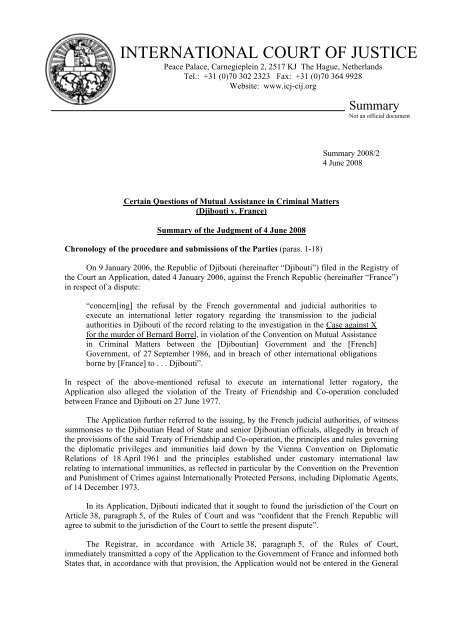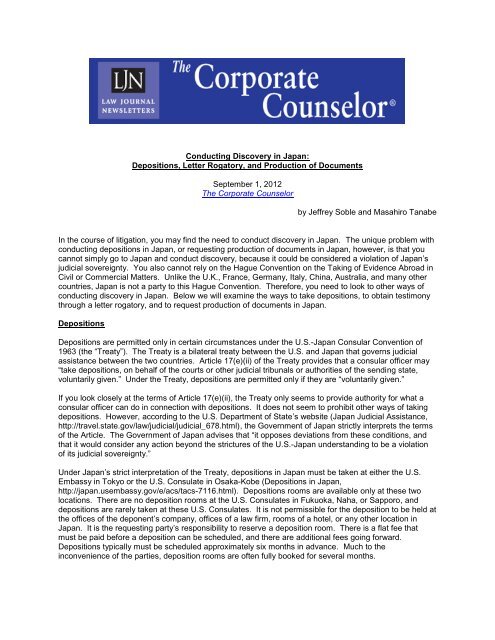An Extensive Review of Letters Rogatory and Their Legal Implications
An Extensive Review of Letters Rogatory and Their Legal Implications
Blog Article
The Duty of Letters Rogatory in International Law: Secret Insights
Letters rogatory function as a critical instrument in worldwide regulation, assisting in cross-border legal assistance by allowing jurisdictions to officially request evidence and actions from each other. Rooted in historic precedents and defined through arrangements like the 1970 Hague Convention, these requests are essential for fostering worldwide cooperation. Their implementation frequently encounters considerable obstacles, consisting of disparities in step-by-step hold-ups and legal standards, which can impede their efficiency. Understanding the nuances of this process increases vital concerns regarding worldwide collaboration and the prospective reforms needed to improve its reliability. What ramifications might these difficulties have for future legal proceedings?
Interpretation of Letters Rogatory
In the world of worldwide regulation, letters rogatory function as official demands released by a court in one jurisdiction to look for help from a court in another territory. Letters rogatory. These requests are specifically considerable in cross-border lawful procedures, where the enforcement of a court's order or the gathering of proof may be hindered due to jurisdictional constraints

The procedure normally requires the asking for court to articulate the certain information or action required from the international court, adhering to the lawful methods and conventions established between the jurisdictions entailed. When released, the letters rogatory are transferred through diplomatic networks, which might consist of consular offices or consular offices, to make certain that the request is identified and acted on by the foreign court. On the whole, letters rogatory exhibit the participating structure important for efficient global lawful procedures.
Historic Context
Although the technique of letters rogatory has ancient origins, its formalization within the framework of international legislation emerged dramatically in the 20th century. Historically, such ask for judicial assistance were utilized in various lawful traditions, consisting of Roman law, where they facilitated cross-border collaboration in lawful issues. The principle obtained renewed focus with the surge of globalization and the increasing complexity of international legal interactions.
The mid-20th century saw the establishment of treaties and conventions that looked for to systematize the process of letters rogatory. Significantly, the 1970 Hague Convention on the Taking of Evidence Abroad in Business or civil Matters provided a structured method, boosting the efficacy of these demands - Letters rogatory. This duration noted a change from informal plans to a much more methodical framework, which resolved the difficulties presented by differing national lawful systems
As states became extra synergistic, the need for reliable mechanisms to gather proof throughout boundaries ended up being noticeable, reinforcing the role of letters rogatory in promoting international cooperation. Today, they remain an important instrument for acquiring evidence and making sure that justice goes beyond nationwide boundaries, reflecting the advancing nature of global law in action to global difficulties.
Refine of Issuing Requests
The procedure of releasing letters rogatory typically involves several important actions designed to make sure that ask for judicial assistance are clear, specific, and certified with both international and domestic lawful standards. An event seeking assistance must prepare an official request that outlines the important facts of the instance, the alleviation sought, and the certain proof or statement needed. This record needs to be crafted with precision to meet the lawful demands of the jurisdiction in which it will certainly be sent.
Complying with the prep work of the demand, it is submitted to the ideal authority, commonly a court or an assigned governmental firm. This authority examines the request to ensure it sticks to procedural standards and legal criteria. When approved, the demand is transmitted to the international jurisdiction with diplomatic channels.
Upon invoice, the foreign court evaluates the demand's conformity with its regional regulations and methods (Letters rogatory). If approved, it proceeds to carry out the demand, which might include the issuance of subpoenas or the collection of proof. Throughout this process, preserving clear interaction between the asking for and obtaining jurisdictions is important to make sure effective teamwork and the gratification of the request
Obstacles and Limitations
Restrictions and obstacles often emerge in the process of implementing letters rogatory, often coming from differing legal systems and treatments between jurisdictions. One considerable barrier is the differing standards of admissibility for evidence, which can lead to difficulties in the acceptance of paperwork asked for via letters rogatory. Additionally, the absence of uniformity in legal terminology and meanings can create misconceptions, making complex interaction in between courts in various nations.
Moreover, delays prevail due to bureaucratic processes, as the request may require to travel through see here several layers of lawful authorities prior to it is satisfied. In some instances, the asked for territory might do not have the necessary resources or determination to comply, even more hindering the procedure. Language barriers also add to challenges, as precise translation of legal records is critical for guaranteeing that the intended message is conveyed without distortion.
Lastly, sovereignty problems might develop, as some states hesitate to follow requests that they regard as infringing upon their lawful freedom. These difficulties highlight the complexities inherent in making use of letters rogatory, demanding higher harmonization and teamwork amongst worldwide legal systems to enhance their performance.

Influence On International Collaboration
Acknowledging the relevance of letters rogatory in fostering international teamwork is critical, as these requests help with cross-border legal help and advertise joint initiatives in criminal and civil matters. By allowing one territory to officially ask for aid from an additional, letters rogatory create a structured legal framework that improves the performance of global interaction in between judicial authorities.
The usage of letters rogatory aids to develop common trust fund and regard among nations, which is necessary in a significantly interconnected globe. They act as a wikipedia reference device not just for collecting evidence however likewise for making certain that lawful procedures are maintained across borders. This is particularly important in combating transnational crime, where the lack of ability to secure cooperation can undermine justice.
In addition, the dependence on letters rogatory can improve complex lawful process, minimizing delays and uncertainties in worldwide investigations. The procedural safeguards integral in this procedure add to the protection of specific legal rights while helping with cooperation amongst states. Eventually, the impact of letters rogatory on global teamwork underscores their duty as crucial tools in the promo of justice, promoting a collective spirit that transcends lawful systems and national borders.
Final Thought
In verdict, letters rogatory offer as an important instrument in worldwide law, promoting cross-border lawful aid and teamwork. The continued evolution of these devices is crucial for improving the efficiency of international lawful procedures, inevitably cultivating stronger cooperation in both criminal and civil issues throughout jurisdictions.
Letters rogatory offer as a pivotal tool in international law, facilitating cross-border legal support by enabling territories to officially ask for proof and activities from one an additional.The procedure usually calls for the asking for court to express the details details or activity required from the international court, sticking to the lawful procedures and conventions established between the jurisdictions involved. Historically, such requests for judicial assistance were utilized in numerous lawful practices, consisting of Roman legislation, where they assisted in cross-border teamwork in legal matters.The process of releasing letters rogatory typically includes several critical actions made to make certain that demands for judicial help are clear, particular, and compliant with both worldwide and domestic lawful criteria.Additionally, delays are common due to check my site governmental procedures, as the request might require to pass through multiple layers of lawful authorities before it is met.
Report this page